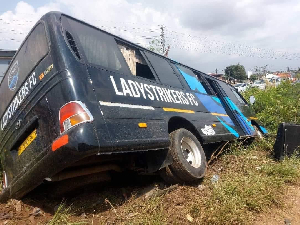The National Association of Institutional Suppliers, a group of Small and Medium scale local businesses, that provides educational supplies to the various Senior High schools in the country, is urging government not to centralise the procurement of logistics needed for the implementation of the free SHS policy.
The about 300 SMEs have over the years supplied educational materials including food items to the second cycle institutions through tendering processes carried out by management of the individual schools.
However, with the rolling out of the government’s flagship free SHS policy from next week, the Local suppliers fear going out of business as the procurement of materials such as text books has been centralized at the free SHS secretariat in Accra.
Isaac Antwi Boasiako, National Public Relations Officer of the group, told Starr News their members risk losing their jobs to large entities as they lack the financial muscle to bid for such large contracts.
“From the way the policy is being handled, it means few will be bidding unlike those days without the free SHS where the headmaster is the spending officer, they conduct the procurement in the schools, and they award the contract to these individual small scale companies to provide and supply the materials and books to the schools.
“If they take these powers from the headmasters, it means every single contract or procurement will be done at the top, by which we [small suppliers] don’t have that capacity in terms of capital or means to supply the whole country, our job is going to be given to few hands that have the willpower and capacity,” he bemoaned.
Mr. Antwi Boasiako has therefore appealed to government to take a second look at the policy to enable them remain in business stating that “every secondary school has more than 25 local suppliers and supposing we have 600 secondary schools, between 15,000 to 18,000 jobs are at stake, if all the contracts are given few large companies at the top, what happens to the rest of us?”
General News of Friday, 8 September 2017
Source: starrfmonline.com

















